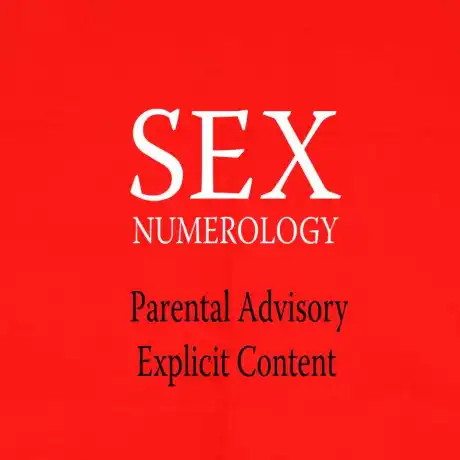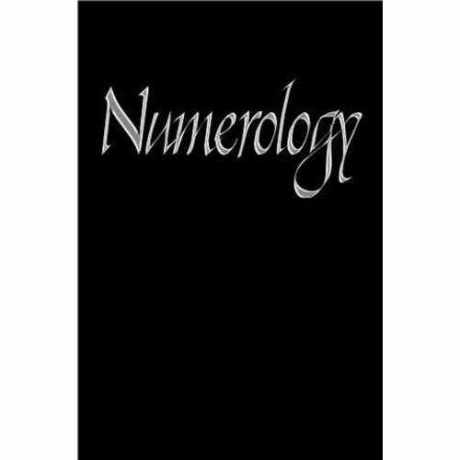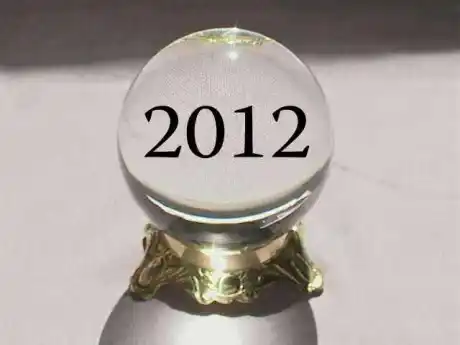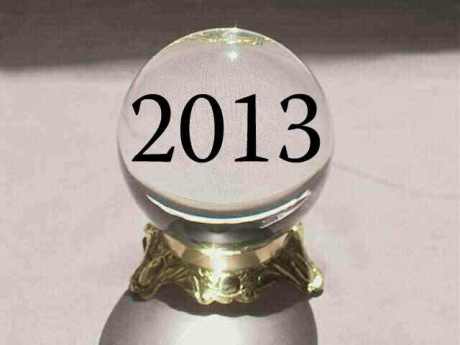
Clockwise from top left: Gov. Andrew M. Cuomo of New York, Secretary of State Hillary Rodham Clinton, Mark R. Warner, Gov. Martin O’Malley of Maryland, Elizabeth Warren.
February 3, 2012
DISTANT as it may now seem, with the Republican race dominating the news and President Obama sitting in the White House, the Democrats are not all that far from the tumult of another nominating contest themselves.
No matter what happens on Election Day in November, when Mr. Obama wakes up the next morning, he will no longer be the future of his party. If he loses, attention will immediately turn to which Democrat might be able to pick up the pieces from the deep disappointment of his one term. If he wins, the party will begin turning to who might be able to accomplish the difficult task of winning a third straight term for one party. Already, the jockeying for 2016 has begun.
Gov. Martin O’Malley of Maryland, a possible candidate, traveled to South Carolina for its primary two weeks ago to give interviews criticizing Mitt Romney, the Republican front-runner. Andrew M. Cuomo, the New York governor, had a successful first year by going to the left on same-sex marriage and to the center on the budget. The candidate looming above all others is Hillary Rodham Clinton, who would instantaneously become the front-runner if she entered the race but who says she is retiring from public life when she steps down as secretary of state at the end of Mr. Obama’s current term. Democratic strategists and fund-raisers are divided over how seriously to take that vow.
Whoever the candidates turn out to be, they will inevitably need to define themselves in relation to Mr. Obama, even if they don’t say so. (After George Bush called for a “kinder and gentler” society in his 1988 Republican convention speech, Nancy Reagan reportedly asked, “Kinder and gentler than whom?”)
Mr. Obama cast himself in 2008 as a more ambitious Democrat than Bill Clinton had been, one who wanted to begin a new era of American politics, as Ronald Reagan had. Mr. Obama may yet succeed, at least partly, if he can win re-election and cement the legislation of his first two years.
Ideologically, however, he has largely followed Mr. Clinton’s left-center playbook, preferring a mix of market-based and government solutions (like health-insurance exchanges) to a more radical approach (like Medicare for all). “The Obama presidency is not one in which the Democratic Party has been transformed,” said Julian E. Zelizer, a Princeton historian. “Instead, it has been four and maybe eight years in which the path of the ’90s was solidified.”
A central question for 2016 is whether the mostly cohesive stitching of the left and center, a feature of both the Clinton and Obama years, will last. If not, Democrats could find themselves in the sort of turmoil that long characterized the party — and that afflicted Republicans in 2008 and again this year.
Many economists expect the economy to remain weak for several years, which could create an opening for a more pointedly liberal candidacy regardless of whether Mr. Obama wins this year. If he loses, many Democrats will surely focus on what they see as Mr. Obama’s timidity, be it on civil liberties, climate policy, the filibuster or public-works programs to help the unemployed.
Democratic voters may well go looking for a candidate who can credibly make a version of the same promise that Mr. Obama did in 2008: to change the terms of the national debate, rather than simply to operate as successfully as possible within the status quo.
The big caveat that should come with any discussion of 2016 is that a lot can happen between now and then. There may be one or two important 2016 candidates, whatever their ideologies, who remain obscure today. Or a prominent figure from Hollywood, Silicon Valley or a labor union could run.
Consider that eight years ago Mr. Obama could well have sat next to you on a plane without your noticing. At the time, he was an anonymous Illinois state legislator and Senate candidate. Herman Cain, who briefly dominated the current Republican race, was almost as obscure only a year ago.
Quick ascents are not wholly new. Abraham Lincoln and Jimmy Carter also went from national obscurity to the presidency in a short span. But such rises do seem more common than they once were. Twitter, Facebook and the rest of the Web allow candidates to jump ahead of others who have spent years wooing local party officials and editorial writers. The Supreme Court’s 2010 ruling relaxing campaign-finance regulations may help newcomers, too.
The current partisan rancor has also increased the benefits of not having a long paper trail, in electoral politics and beyond. Tom Daschle, the former senator, urged Mr. Obamato run in 2008, partly because he did not yet have a long voting record. Arguably the two most powerful unelected officials in the country are John G. Roberts Jr., the chief justice of the United States, and Ben S. Bernanke, the Federal Reserve chairman. A decade ago, Mr. Roberts was a lawyer in private practice, while Mr. Bernanke had run nothing larger than the Princeton economics department.
A plausible newcomer for 2016, Democrats say, is Elizabeth Warren, who advised Mr. Obama on the creation of a consumer-protection bureau for financial products and is now running to be a senator from Massachusetts (against Scott P. Brown, the incumbent and a Republican hero). She can deliver a punchy case for economic fairness, which has already made her a YouTube sensation. Obviously, she first would need to unseat Mr. Brown.
What kinds of Democratic candidates might we see in the 2016 field?
THE SILENT FRONT-RUNNER Imagine for a moment how Democrats would feel late on the night of Nov. 6 if news outlets began to call the race for Mr. Romney or another Republican. The comedown from four years earlier would be one of the starkest in American political history. The promise of Mr. Obama’s victory would yield to the reality that a Republican president, and probably a Republican Congress, would be likely to undo significant parts of his agenda, starting with aspects of health care reform.
The post-mortem is easy enough to predict: Mr. Obama was a lamb among lions, naïve to believe that he could win Congressional Republicans over to major bills, even compromises. Mitch McConnell, the Republican leader in the Senate, said as much early in Mr. Obama’s term.
At least one Democratic politician began making this critique well before Mr. Obama was in office. “We’ve got to be really clear that this is a struggle,” Mrs. Clinton said in a 2008 interview, chiding Mr. Obama for his approach, “and this is just not a moment where everybody will see the world the way it should be seen and come together to solve these problems.”
If Mr. Obama loses, attention will shift to Mrs. Clinton almost immediately. She brings her own baggage, having run a troubled presidential campaign and been a leading figure in a somewhat chaotic White House. She also sounds sincere when she talks of wanting a break. Arguably, no public figure has had a more intense past 20 years.
But at 64, she remains energetic and politically attuned. With friends and close colleagues, she still talks passionately about how she believes the Republican Party is harming the country. Polls show that she is among the most admired people in the United States. Given all that, turning down the prospect of beating a Republican incumbent might not be so easy.
THE DOER Whatever else happens, at least one governor or former governor will probably become a major candidate. Four of the last six presidents have been ex-governors. And in 2016, a governor may be best suited to offer the sort of implicit contrast that candidates often want to make with the last president from their party.
Mr. Obama is a talented speaker, which can allow his detractors to cast him as a talker rather than a doer. The next group of Democratic candidates may not say so, but they presumably would not mind if voters favorably contrasted their backgrounds with Mr. Obama’s.
Regardless of the 2012 result, “what will seem really appealing to people is performance,” said John Podesta, chairman of the Center for American Progress and a former chief of staff to Mr. Clinton. Governor O’Malley added, “We have to do what works and admit when things aren’t working.”
Governor Cuomo has surprised his critics in the party, who remember him as an intemperate Clinton cabinet secretary, with his strong start as New York governor. His success pushing through a same-sex-marriage bill will help him with liberals, even though he seems more of a centrist, having confronted public-sector unions and opposed a millionaire’s tax. Mark Warner, the Virginia senator who helped erase a budget deficit as governor, could likewise run as a moderate, with some of the Southern appeal that helped Mr. Clinton.
Still, a paean to post-partisanship may be a tricky message to bring to Democratic primary voters in 2016, given Mr. Obama’s failure to win over Republicans. Compared with his fellow governors, Mr. O’Malley may be a more natural progressive fighter. A former Baltimore mayor, he could point to Maryland’s schools, among the best in the nation, and his willingness to fight for tax increases and cut other parts of government to finance education.
“We have gone through a period when we have decided, knowingly or unknowingly, to undercapitalize the great, job-generating, opportunity-expanding capacity of America,” he said in a recent interview.
Several other governors — Deval L. Patrick of Massachusetts; Tim Kaine, another former Virginia governor; Christine O. Gregoire of Washington; John Hickenlooper of Colorado; Jay Nixon of Missouri — may also be tempted. Even some current mayors, including Cory A. Booker of Newark, Rahm Emanuel of Chicago and R. T. Rybak of Minneapolis, may be potential future candidates.
One complication for the party is that its dismal 2010 showing left it with relatively few big names in swing states.
THE THIRD OBAMA TERM As should be clear by now, politics can change a lot in a couple of years. By the time the 2016 candidates begin making campaign announcements, Mr. Obama may be working on his presidential library — or be a more popular president than he is today.
The economy might finally be healing nicely. A raft of expiring tax rates could push the parties into the big deficit deal that eluded Mr. Obama and John A. Boehner, the speaker of the House, last year. Events abroad, war or peace, could lift Mr. Obama at home.
In that case, candidates who can claim strong ties to him may see an opening. Vice President Joseph R. Biden Jr. has said that he remains open to running, though he will be 74 in 2016, two years older than John McCain was in 2008 and five years older than Ronald Reagan was in 1980. Another option is Mr. Emanuel, Mr. Obama’s first chief of staff, who delivered a stinging critique of Mr. Romney in a high-profile speech just before the Iowa caucuses.
THE OUTSIDER Presidential campaigns often include candidates who win large batches of votes without ever seeming to have a serious shot at the nomination. Ron Paul falls into the category this year, and Jesse Jackson did in the 1980s. The seeds for such campaigns can sometimes be a single issue.
By 2016, scientists predict, the planet will have become even warmer, and extreme weather events may be more common as a result. Assuming Washington develops no major new climate policy in the next four years, the issue could easily form the basis of an insurgent campaign. It would not even need to come from someone who is today seen as an environmentalist.
To use an analogy, Howard Dean spent most of his 12 years as Vermont’s governor being considered a moderate Democrat, more interested in budget cuts than many others in his party. “Howard Dean represented the Republican wing of the Democratic Party,” the editor of a local weekly newspaper said at the time. Yet Mr. Dean’s opposition to the Iraq war turned him into something of a liberal hero, and he embraced the role in his 2004 presidential campaign.
In retrospect, it may seem odd. But it is certainly no stranger than the election of a father and son in the span of eight years, with the latter being followed by a recently obscure African-American man. It’s politics.
———————————————————————————————
The United States presidential election is scheduled for Tuesday November 8th, 2016 according to http://en.wikipedia.org/wiki/United_States_presidential_election,_2016

The United States declared independence on July 4th, 1776 according to http://en.wikipedia.org/wiki/United_States
July 4th, 1776
July 4th
7 + 4 +2+0+1+6 = 20 = the United States’ personal year (from July 4th, 2016 to July 3rd, 2017) = Courts. Judges. Turning point. Final answer. You be the judge. Judge for yourself. Too close to call.

20 year + 11 (November) = 31 = the United States’ personal month (from November 4th, 2016 to December 3rd, 2016) = Contest. Competitive. Controversy. Scandal. Contentious. Strife. Things get out of hand.

31 month + 8 (8th of the month on Tuesday November 8th, 2016) = 39 = the United States’ personal day = Keep your promises. Half-truths. If it sounds too good to be true, it probably is.

—————————————————————————————–
—————————————————————————————–
—————————————————————————————–
Sex Numerology available at:
https://www.createspace.com/3802937
—————————————————————–
—————————————————————–
——————————————————————
discover some of your own numerology for FREE at:
—————————————————————————————–
—————————————————————————————–
—————————————————————————————–
learn numerology from numerologist to the world, Ed Peterson:
https://www.createspace.com/3411561
—————————————————————————————–
—————————————————————————————–
—————————————————————————————–
numerology for Friday December 21st, 2012 (the “end of the Mayan calendar”) at:
—————————————————————————————–
—————————————————————————————–
—————————————————————————————–
comprehensive summary and list of predictions for 2012:
http://predictionsyear2012.com/
—————————————————————————————–
—————————————————————————————–
—————————————————————————————–
predictions for the year 2013 are at:













